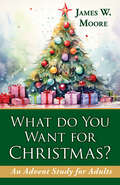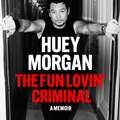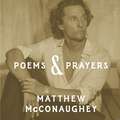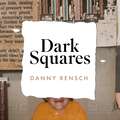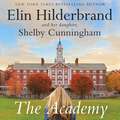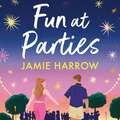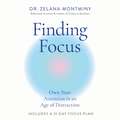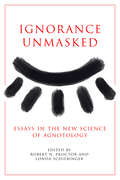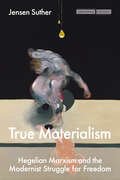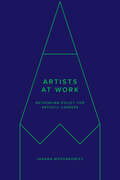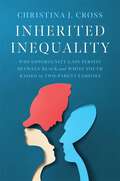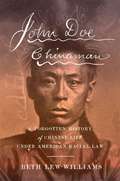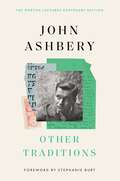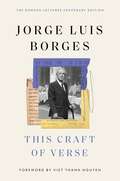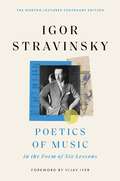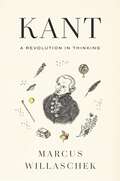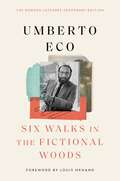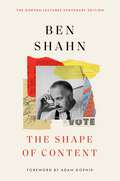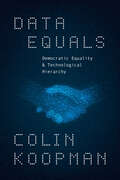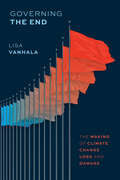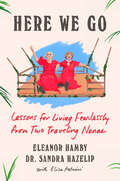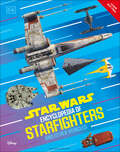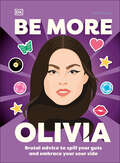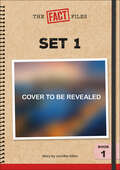- Table View
- List View
What Do You Want for Christmas?: An Advent Study for Adults
by James W. MooreDiscover the gifts Christ brings this Christmas.“What do you want for Christmas?” It’s a question we often hear as the holidays approach. Most of the time, our minds instantly jump to material things—gifts we can unwrap, hold, and call our own. But what if we paused for a moment and asked ourselves a more meaningful question?What do you truly want for Christmas? Deep down, does your heart yearn for something money can’t buy? Author James W. Moore invites you to explore these deeper longings in his enriching four-week study. Designed for both groups and individuals, this program gently guides you through the season of Advent with weekly lessons that focus on the gifts Christ brings into our lives. Here’s what each week includes: - A key passage of Scripture to center your thoughts - A brief reflection to inspire and guide - Thought-provoking discussion or study questions - A short prayer to connect you spiritually - A focus to keep your heart-centered throughout the week This holiday season, step away from the hustle and bustle for a few moments each week to reflect on the gifts that truly matter.
The Fun Lovin’ Criminal
by Huey MorganWhen Fun Lovin' Criminals released their debut album Come Find Yourself in 1996, its fusion of hip-hop, funk, blues and rock quickly became one of the most iconic and influential records of the decade. Now, in this fascinating memoir, frontman Huey Morgan describes his remarkable journey from journeyman to rock star.This is a story that begins in the early 1990s with a young man who, after returning to New York City from his time as a United States Marine, is struggling to cope with normal life. Huey begins his quest to become a rock star only to be sidetracked by his association with the New York criminal underworld. But as his band begins to take off, can he extract himself before his chance of stardom goes begging?Written in Huey's indomitable and distinctive style, this is a book that brings the grit and glamour of 90s New York brilliantly to life.
Poems & Prayers: Matthew McConaughey's brand new inspirational book
by Matthew McConaugheyFrom the Academy Award-winning actor and #1 New York Times bestselling author of Greenlights comes an inspiring, faith-filled, and often hilarious collection of personal poetry and prayers about navigating the rodeo of life and chasing down the original dream, belief. My prayers are my poems are my prayers.I've always relied on logic to make sense of myself and the world.A prescriptionist at heart, I've always looked to reason to find the rhyme, the practical to get to the mystical, the choreography to find the dance, the proof to get to the truth, and reality to get to the dream.I've been finding that tougher to do lately. It's more than hard to know what to believe in; it's hard to believe.But I don't want to quit believing, and I don't want to stop believing in . . . humanity, you, myself, our potential.I think it's time for us to flip the script on what's historically been our means of making sense, and instead open our aperture to enchantment and look to faith, belief, and dreams for our reality.Let's sing more than we might make sense, believe in more than the world can conclude, get more impressed with the wow instead of the how, let inspiration interrupt our appointments, dream our way to reality, serve some soul food to our hungry heads, put proof on the shelf for a season, and rhyme our way to reason.Forget logic, certainty, owning, or making a start-up company of it; let's go beyond what we can merely imagine, and believe, in the poetry of life.
Dark Squares: The extraordinary new memoir by the chief chess officer for Chess.com
by Danny RenschEducated meets The Queen's Gambit in this extraordinary memoir by International Master and Chess.com co-founder Danny Rensch, who describes his upbringing in an abusive cult - and how chess ended up saving his lifeBorn into the Church of Immortal Consciousness, Danny Rensch spent his childhood navigating the isolated confines of a cult. Despite psychological manipulation, physical abuse, and neglect, he persevered. An international chess master and world-class commentator, Rensch's remarkable journey led him to being the face of Chess.com, one of the largest online gaming platforms in the world. With unflinching honesty, Rensch recounts his life, starting from the moment he discovered chess in the summer of 1995, all the way up to being at the center of the most explosive cheating scandal in chess history. He chronicles the traumas of being "special" in a cult that forced separation from his mother. Mentored by an alcoholic, Russian chess master, he found solace alongside suffering in his obsession for an ancient game, and chess became his only escape. Rensch rose through the chess ranks until a medical emergency nearly took him out of the game forever. And it almost did, until Chess.com came along. Deeply heartfelt, keenly reflective, and haunting, Dark Squares is the never-before-told story of Danny Rensch's resilience, survival, and his enduring love for the game that saved him.
The Academy: the new gripping novel from the author of The Perfect Couple
by Elin Hilderbrand Shelby CunninghamSecrets, rumours, and dangerous liaisons - at an elite New England boarding school, they come with the territory.It's move-in day at Tiffin Academy and amidst the happy chaos of friends reuniting, selfies uploading, and cars unloading, shocking news arrives: America Today just ranked Tiffin the number two boarding school in the country. It's a seventeen-spot jump - was there a typo? The dorms are dingy, the sports teams always come last and Tiffin students are known for being more social than academic. But the campus is exquisite, class sizes are small, and the dining hall is run by a New York chef. And they do have lots of fun . . .But as the rarefied air of Tiffin is suffused with self-congratulation, scandalous bulletins begin to appear on phones across campus, thanks to a new app called Zip Zap, and nobody is safe. From Davi Banerjee, queen bee and international influencer, to Simone Bergeron, the young new history teacher; to Charley Hicks, a transfer student who seems determined not to fit in, it seems everyone has something to hide.As the year unfolds, bonds are forged and broken, secrets are shared and exposed, and the lives of Tiffin's students and staff are changed forever.Elin Hilderbrand, bestselling author of The Perfect Couple, teams up with her daughter, Shelby Cunningham, to deliver a fresh and buzzy look behind ivy-covered walls.
The Menopause Moment: Mindset, Hormones and Science for Optimal Longevity
by Kelly Casperson M.D.What if everything you've been told about midlife and menopause is wrong?For too long, women have been fed fear and confusion about hormones, aging, and what it means to navigate midlife. The result is a generation of women left guessing about their own bodies, misinformed by outdated science, and held back by myths that serve no one.This book is not here to tell you what to do; it's here to give you the knowledge to decide for yourself because women like you are smart. You'll learn the truth about what happens to your body in midlife, how hormones actually work (without the hype or fearmongering), and evidence-based strategies to feel your best and the power to live life on your terms - in health and with science-backed strategies for your longevity. Midlife isn't an ending. It's an evolution. And when you understand what's happening in your body, you can step into this next chapter with confidence, clarity, and power.Are you ready to take back the narrative?
Fun at Parties: the perfect friends-to-lovers road trip romance for fans of Abby Jimenez and Jessica Joyce
by Jamie Harrow'Equal parts funny and emotional . . . a new favourite!' Catherine Walsh, author of Holiday Romance'I loved everything about Fun at Parties . . . Jamie Harrow has solidified herself as one of my favourite authors' Jessica Joyce, author of The Ex Vows Spin instructor Quinn Ray is sunshine personified, so when she has a mid-class meltdown after a bad break up, her boss orders her to take a few weeks off work. And with nothing else to lose, Quinn decides a quiet road trip through Americaʼs most tranquil scenery is exactly what she needs as she re-examines her life choices. But then Nate Reed, whoʼs barely spoken to Quinn since their friendship imploded two years ago, asks to hitch a ride. He needs to find their chaotically lovable pal, Logan, to discuss something important, and Quinn is happy to drop Nate off wherever he needs to be. The problem is, party boy Logan doesnʼt want to be found. And as Quinnʼs peaceful road trip becomes a tour of Americaʼs biggest party spots, she realizes Nate might just be the silver lining she never thought to look for.Readers LOVE Fun at Parties!'Absolutely gorgeous! A fun, light-hearted road trip that suddenly hits you deep in the heart' ⭐⭐⭐⭐⭐'If you like authors like Abby Jimenez, Jessica Joyce and Emily Henry, I think that you would really enjoy Jamie Harrow's writing . . . This was an easy five stars for me and I can't wait for her next book!' ⭐⭐⭐⭐⭐'This book truly felt like going on a very chaotic road trip with friends . . . I loved every second of it' ⭐⭐⭐⭐⭐'A fun, swoony, and unexpectedly heartfelt romance that left me grinning from start to finish' ⭐⭐⭐⭐⭐'Nails that sweet spot between fun romance and authentic, real emotions . . . and the chemistry between Quinn and Nate? FIRE' ⭐⭐⭐⭐⭐
Finding Focus: Own Your Attention in an Age of Distraction
by Dr Zelana Montminy'Finding Focus is an essential read for our distracted times' - Dr Mark Hyman'Filled with helpful applications and science-packed insights, this practical guide to improving our mental focus empowers us to create real changes in our daily lives that can improve our mental and physical health' - Dr Daniel J. SiegelOur brains are wired for focus. We are designed for it, we crave it, and yet in our current age of overload we too often feel like our minds are bolting from one distraction to the next, with sustained focus always just out of reach.Finding Focus is an empowering guide to reclaiming your most precious resource: your attention. Leading behavioural scientist Dr Zelana Montminy unveils the science behind focus and distraction, revealing how our hyperconnected reality and the endless flux between digital and physical life fragments our thoughts and diminishes our well-being.The good news? Your brain is more adaptable than you think. Finding Focus equips you with powerful strategies to:* Silence the noise: Learn to manage distractions and cultivate an environment that fosters deep concentration.* Rewire your brain: Discover the science of neuroplasticity and harness its power to train your brain for sustained focus.* Unleash your potential: Reclaim the ability to connect meaningfully, contribute authentically, and shape the life you desire.* Rediscover yourself: Fuel your curiosity, creativity, and capacity for joy.Focus is key to our ability to do good work, but it's connected to so much more than just efficiency or productivity. When our rest is punctured by email notifications we feel exhausted; when family time is disrupted by multitasking we seem disconnected from each other; when creative space is drained away by the lure of other priorities, we feel empty. But if we can control our attention and be present, if we choose when and how we engage, we have a greater sense of wellbeing, deeper fulfillment, and a clear purpose. Finding Focus invites you to ask the question 'Where do I want to direct my focus today?' and supports you on your journey to reclaiming your attention and curating the life you want to lead. It is a call to arms for anyone yearning to break free from the grip of distraction and live a life brimming with purpose and connection.
Ignorance Unmasked: Essays in the New Science of Agnotology
by Robert N. Proctor and Londa SchiebingerWe live in an age of ignorance. This book offers a guide to how we got here—and how we might escape. From obfuscations of climate science to the myriad deceptions inhering in language, Ignorance Unmasked explores how agnotology—the study of ignorance—can help us better grasp: Why don't we know what we don't know? What are the obstacles to knowledge, and how might those be overcome? Ignorance has countless agents and authors; it gets deliberately manufactured and widely disseminated. In a provocative set of essays, this book engages climate change and public health, algorithmic amplification of misinformation, deep fakes and data obsolescence, the origins of free market fundamentalism and gun industry deceptions, along with the ignorance produced by military trauma, sugar and meat agnotology, environmental malfeasance, and the forgetting of the Nakba. It helps us better understand how and why knowledge gets erased, and how rectifying such ignorance can enlarge human liberties and planetary health. Contributors: Nadia Abu El-Haj, Daniel Akselrad, Erik M. Conway, John Donohue, Hany Farid, Benjamin Franta, Peter Galison, Jennifer Jacquet, Caroline A. Jones, Robert Lustig, Naomi Oreskes, Robert N. Proctor, Rosemary Sayigh, Londa Schiebinger, and Nanna Bonde Thylstrup
True Materialism: Hegelian Marxism and the Modernist Struggle for Freedom (Cultural Memory in the Present)
by Jensen SutherIn recent years, there has been an explosion of interest in both Marxism and German Idealism across the humanities, but the discourse around the two traditions has grown stagnant and is still defined by the same century-old debates—materialism versus idealism, history versus logic, revolution versus reform. With this exciting new work, Jensen Suther endeavors to transform this discourse by presenting an unprecedented systematic vision of the possibility of a Hegelian Marxism, grounded in Aristotle's logic of living form. Through engagement with three titans of literary modernism—Franz Kafka, Thomas Mann, and Samuel Beckett—Suther pursues not only an account of Hegel's materialism but also a new critique of capitalist modernity. Breaking with the received view of Marx's relation to German Idealism, the book argues that the materialist critique of capitalist production is inseparable from Hegel's idea that the demand for freedom is a demand for mutual recognition. The implication for Marxist criticism is that literary works cannot be understood apart from the political struggle for both recognition and new forms of social production. Anyone invested in socialist politics, the future of literary theory, the history of philosophy, and the study of modernism will want to contend with the way Suther rethinks Marxist theory and literary criticism from the ground up, starting with their foundations in Hegelian thought.
Artists at Work: Rethinking Policy for Artistic Careers (Culture and Economic Life)
by Joanna WoronkowiczWhy is it so hard for artists to have stable careers? Written with clarity and grounded in data, Artists at Work offers an eye-opening look at what it truly means to build a career as an artist today. Joanna Woronkowicz examines how artists navigate unique challenges in America's creative economy, from unpredictable job markets to evolving copyright laws and public funding constraints. Woronkowicz exposes current public policy for artists as patchwork and susceptible to changes in the political climate. Such fragile infrastructure limits artists' ability to build sustainable careers. Remaking this system requires a deeper understanding of creative labor. By shining a light on today's artists-who they are, how they train, and what they do-Woronkowicz emphasizes both that artists are not unlike other workers, and also that policies have not been designed with their unique employment behaviors in mind. This book is a timely and critical guide for anyone invested in supporting the future of the arts, and artists, in America.
Inherited Inequality: Why Opportunity Gaps Persist between Black and White Youth Raised in Two-Parent Families
by Christina J. CrossA groundbreaking study challenges basic tenets of US social welfare policy with proof that raising Black children in two-parent families does not close racial gaps in life outcomes.Ever since Daniel Patrick Moynihan’s controversial 1965 report on “The Negro Family,” the disadvantages of the single-parent household have been at the center of debates about racial inequality in the United States. In particular, absent fathers and single-parent homes are seen as fundamental to the “tangle of pathology” that supposedly underlies Black disadvantage. Redressing inequality thus requires interventions that promote marriage and shore up the two-parent family.Inherited Inequality is a decisive refutation of this narrative and a definitive account of the harm it has caused. Marshaling extensive longitudinal data of African American and white children from birth through young adulthood, sociologist Christina Cross demonstrates that the two-parent family is no equalizer. While growing up with two parents increases average household income and allows for more parental involvement, the resulting gains are racially skewed: Black children brought up in a two-parent home still fare much worse than their white counterparts, in school and on the job market. Thus, interventions aimed at correcting the supposed deficiencies of the Black family will not fix these inequities. To the contrary, Cross insists, focusing on family structure distracts us from the racist legacies and logics that persistently leave African Americans with fewer resources and opportunities, regardless of who raises them.The first comprehensive empirical study of its kind, Inherited Inequality is a resounding repudiation of welfare policies that, to this day, favor marriage counseling over economic assistance. More than that, it is a provocative invitation to rethink the meaning of family in Black communities.
John Doe Chinaman: A Forgotten History of Chinese Life under American Racial Law
by Beth Lew-WilliamsA revelatory history of the laws that conditioned the everyday lives of Chinese people in the American West—and of those who negotiated, circumvented, and resisted discrimination.Legal discrimination against Chinese people in the United States began in 1852, when California passed a tax on foreign gold miners that was explicitly designed to exploit Chinese labor. Over the next seventy years, officials in California, Oregon, Washington, and other western states instituted more than five thousand laws that marginalized and controlled their Chinese residents. Long before the Chinese Exclusion Act banned Chinese immigration, these laws constrained the activities and opportunities of Chinese people already living in the United States.In this eye-opening account, Beth Lew-Williams describes a legal architecture redolent of Jim Crow but tailored specifically to people often referred to only as “John Doe Chinaman” or “Mary Chinaman” in official records. Enforced by police and tax collectors, but also by schoolteachers, missionaries, and neighbors, these laws granted the Chinese only limited access to American society, falling far short of equality or belonging. Cementing stereotypes of Chinese residents as criminals, invaders, and predators, they regulated everything from healthcare to education, property ownership, business formation, and kinship customs. Yet in the face of these limitations, Chinese communities reacted resourcefully. Many fought, evaded, and manipulated these laws, finding ways to maintain their prohibited traditions, resist unfair treatment in court, and insist on their political rights.Drawing on dozens of archives across the US West, John Doe Chinaman reveals the depth of anti-Chinese discrimination beyond federal exclusion and tells the stories of those who refused to accept a conditional place in American life.
Other Traditions (The Charles Eliot Norton lectures)
by John Ashbery“An entertaining and shrewd little book … Ashbery is an accomplished raconteur.” —Charles Simic, New York Review of BooksThe most influential American poet of his generation appraises the lesser-known writers who shaped his own confounding, infinitely inventive work.John Ashbery was the quintessential “difficult poet.” When asked to explain his work, he typically responded by insisting that his poetry was its own explanation. Fittingly, then, when he was invited to deliver the Norton Lectures at Harvard in 1989, Ashbery declined to spell out what he put on the page. Instead, he offered rapt audiences a tour of his influences, the authors he turned to as a “jumpstart for times when the batteries have run down.”The poets in Ashbery’s personal canon—John Clare, Thomas Lovell Beddoes, Raymond Roussel, John Wheelwright, Laura Riding, and David Schubert—were all tragic figures in their own way, plagued by mental illness or poverty, ridiculed or barely recognized in their own lives, and in some cases, all but forgotten today. More importantly for Ashbery, each wrote poetry that somehow defies the reader. Clare’s sometimes-monotonous naturalism, Roussel’s exhausting maze of parenthetical clauses, and Wheelwright’s eccentric Anglican mysticism do not invite casual reading. But under Ashbery’s tutelage, we experience the idiosyncratic brilliance of these “other traditions,” discovering how they shaped not only Ashbery’s poetics but also the broader trajectory of twentieth-century literature, from surrealism to New Criticism.With inimitable charm, wit, and erudition, the lectures collected in Other Traditions elevate the imperfect and peculiar, affirming the literary virtues of Ashbery’s difficult predecessors. The result is a revealing self-portrait of one of the giants of American poetry, if only through a convex mirror.
This Craft of Verse (The Charles Eliot Norton Lectures)
by Jorge Luis Borges“A wondrously limpid testament to the pleasures of reading.” —Steven Poole, The GuardianSix incandescent lectures on literature from the patron saint of mirrors, metafiction, and infinite libraries.For more than thirty years, Jorge Luis Borges’s Norton Lectures went unpublished. Recorded at Harvard in 1967 and 1968, the tapes gathered dust in a library vault until their discovery after his death. It was a twist that the author of Labyrinths would have relished. This volume assembles the recovered materials, offering a priceless window into the Argentinian master’s lifelong love affair with the English language.This Craft of Verse captures the cadences, candor, wit, and erudition of one of the twentieth century’s enduring literary voices. Though his avowed topic is poetry, Borges explores subjects ranging from prose forms—especially the novel—to literary history, translation theory, and philosophical aspects of communication writ large. Borges here draws on a wide range of literary examples—modern and medieval English, Spanish, French, Italian, German, Greek, Latin, Arabic, Hebrew, and Chinese. He brings characteristic eloquence and inexhaustible enthusiasm to readings of Plato, the Old Norse kenningar, Byron, Poe, Chesterton, Joyce, and Frost, as well as translations of Homer, the Bible, and the Rubáiyát of Omar Khayyám.Whether discussing metaphor, the origins of verse, or his own “poetic creed,” Borges gives a performance as entertaining as it is intellectually engaging. A lesson in the love of literature and the making of a unique artistic sensibility, This Craft of Verse is a sustained encounter with one of the writers whose place in the twentieth century will be forever remembered.
Poetics of Music in the Form of Six Lessons (The Charles Eliot Norton lectures ; #1939-1940)
by Igor StravinskyTimeless lessons on the pleasures of listening, the dilemmas of composition, and the meaning of artistic freedom from a founder of musical modernism.In October 1939, Igor Stravinsky took the stage at Harvard not as a conductor but as a speaker. Invited to deliver the prestigious Norton Lectures, he had departed Europe just days after the outbreak of war, leaving behind not only a growing political maelstrom but also his life in France, where his wife, eldest daughter, and mother all had died in the previous year.Poetics of Music offers a snapshot of this pivotal moment in the composer’s biography and career. Delivered at the height of his neoclassical period, which blended the sculptural precision of classicism with distinctively twentieth-century cadences, Stravinsky’s lectures explore both the creative potential and the constraints of tradition. Though he achieved artistic immortality as a genre-defying experimentalist who scandalized audiences in Belle Époque Paris, the Stravinsky we find here is more circumspect, defending the dignity of formal conventions against the more anarchic currents of modernist experimentation. Tradition, he argues, is not a relic of a bygone past but a living force that animates the present. And true artistic freedom emerges not only in moments of revolutionary inspiration but also through strict deference to the formal requirements of the work.Like his compositions, Stravinsky’s lectures are ambitious and at times bombastic, punctuated by wit and polemic. Ranging widely from the phenomenology of rhythm to the fate of high culture in the Soviet Union, he invites us to reflect on what it is in music that compels us, whether we are hearing one of his polytonal works or a simple birdsong.
Kant: A Revolution in Thinking
by Marcus WillaschekA foremost Kant expert takes us on a lively tour through the revolutionary ideas of the founder of modern philosophy.Immanuel Kant is undoubtedly the most important philosopher of the modern era. His Critique of Pure Reason, “categorical imperative,” and conception of perpetual peace in the global order decisively influenced both intellectual history and twentieth-century politics, shaping everything from the German Constitution to the United Nations Charter.Renowned philosopher Marcus Willaschek explains why, three centuries after Kant’s birth, his reflections on democracy, beauty, nature, morality, and the limits of human knowledge remain so profoundly relevant. Weaving biographical and historical context together with exposition of key ideas, Willaschek emphasizes three central features of Kant’s theory and method. First, Kant combines seemingly incompatible positions to show how their insights can be reconciled. Second, he demonstrates that it is not only human thinking that must adjust to the realities of the world; the world must also be fitted to the structures of our thinking. Finally, he overcomes the traditional opposition between thought and action by putting theory at the service of practice.In Kant: A Revolution in Thinking, even readers having no prior acquaintance with Kant’s ideas or with philosophy generally will find an adroit introduction to the Prussian polymath’s oeuvre, beginning with his political arguments, expanding to his moral theory, and finally moving to his more abstract considerations of natural science, epistemology, and metaphysics. Along the way, Kant himself emerges from beneath his famed works, revealing a magnetic personality, a clever ironist, and a man deeply engaged with his contemporary world.
Six Walks in the Fictional Woods (The Charles Eliot Norton lectures ; #1992-1993)
by Umberto Eco“Erudite, wide-ranging, and slyly humorous.” —The AtlanticOne of the great novelists and public intellectuals of our time gives a master class on the philosophy of fiction.Umberto Eco was fond of pointing out that all writing is narrative. He published his famed debut novel The Name of the Rose when he was forty-eight years old, yet he believed that everything he had written to that point—from treatises on semiotics to essays on mass culture—took the form of a story. To Eco, scholarship, much like fiction, was shaped by narrative. It was the stuff of life itself.Six Walks in the Fictional Woods, a collection of essays based on Eco’s 1992–1993 Norton Lectures at Harvard, illuminates fiction’s porous boundaries—in particular, the myriad ways that literary works conscript readers’ experiences and expectations. Fiction, says Eco, can offer metaphysical comfort by appealing to our desire for a smaller, more legible world, one that gives a definitive answer to the question of “whodunnit?” But it also makes demands of us, presupposing a model reader who possesses the cultural knowledge necessary to interpret the text, as well as a willingness to follow the never-quite-specified rules of the literary game.Whether he is dissecting grammatical ambiguities in Gérard de Nerval’s nineteenth-century romantic masterpiece Sylvie, studying the rhythms of Ian Fleming’s James Bond novels, or tracing the web of fraud and misattribution that produced the antisemitic conspiracy theory of The Protocols of the Elders of Zion, this is Eco at his very best: intellectually omnivorous, endlessly fascinated by hoaxes, and always an adept navigator of the narrative forests that surround us.
The Shape of Content (The Charles Eliot Norton lectures)
by Ben Shahn“The clearest, most forceful statement on art by an artist of our time that I have read.” —Frank Getlein, New RepublicAn illustrated guide to artistic creation from one of the twentieth century’s most provocative and expressive painters.Can art be taught? For the celebrated activist-painter Ben Shahn, the answer was a qualified yes. Any would-be artist can take a few courses and dip their toes in the water. But a true education goes far beyond the classroom.The Shape of Content, compiled from Shahn’s 1956–1957 Norton Lectures, appeals for artists to break the confines of formal instruction. In wide-ranging reflections on art history, the problems of form, and his own career, Shahn conveys the stubborn determination required to move beyond dilettantism and toward an authentic voice. But he delivers no easy formulas. Critics celebrate artists’ seemingly effortless moments of inspiration, yet genuine achievement is always the fruit of prodigious labor. To the perennial questions of “What shall I paint?” and “How shall I paint it?” Shahn replies: Live and think and try. Read endlessly, develop and test opinions, and above all, don’t stop painting.A figurative realist in an age of high abstraction and an unabashed leftist at the height of the Cold War, Shahn was never quite at home in his own time. The accessibility and popularity of his work, and his sometimes-unfashionable humanism, made him a frequent target of critics during his life. And yet it is precisely these features that have since cemented Shahn as a giant of twentieth-century art. Today, his lectures offer potent lessons for anyone who shares his belief in the power of art to change minds and contest injustice.
Data Equals: Democratic Equality and Technological Hierarchy
by Colin KoopmanAn expansive vision for data equality that goes beyond algorithmic fairness. When we gave algorithms power over our world, we hoped that the apparent neutrality of machine thinking would create a more egalitarian age. Yet we are more divided than ever, staring down threats to democracy itself. In Data Equals, Colin Koopman argues that data technologies fail us so often because we built them around a deficient notion of equality. It is not enough, Koopman explains, that algorithms engage everyone’s data with the same measuring stick. The data themselves are all too often structured in ways that obscure and exacerbate stratifying distinctions. Koopman contends that we must also work to ensure that those people subject to computational assessment enter data systems on equal terms. Part philosophical argument, part practical guide (replete with case studies from education technology), Data Equals offers novel methods for realizing democratic equality in a digital age.
Governing the End: The Making of Climate Change Loss and Damage (Chicago Series in Law and Society)
by Lisa VanhalaA searing account of how the international community is trying—and failing—to address the worst effects of climate change and the differential burdens borne by rich and poor countries. Climate change is increasingly accepted as a global emergency creating irrevocable losses for the planet. Yet, each country experiences these losses differently, and reaching even inadequate political agreements is fraught with contestation. Governing the End untangles the complex relationship between deteriorating environmental conditions, high politics, and everyday diplomatic practices, focusing on the United Nations’ agreement to address “loss and damage” and subsequent battles over implementation. Lisa Vanhala looks at the differing assumptions and strategic framings that poor and rich countries bring to bear and asks why some norms emerge and diffuse while others fail to do so. Governing the End is based on ethnographic observation of eight years of UN meetings and negotiations and more than one hundred and fifty interviews with diplomats, policymakers, UN secretariat staff, experts, and activists. It explores explicit political contestation, as well as the more clandestine politics that have stymied implementation and substantially reduced the scope of compensation to poor countries. In doing so, Governing the End elucidates the successes and failures of international climate governance, revealing the importance of how ideas are constructed and then institutionally embodied.
Here We Go: Lessons for Living Fearlessly from Two Traveling Nanas
by Eleanor Hamby Dr. Sandra HazelipIt's Never Too Late for the Next ActWhen Ellie and Sandy met after becoming empty-nesters and then widows, their late-in-life friendship blew open a new, exciting chapter of life: living fearlessly and adventurously. But they never could&’ve imagined it would also propel them—in their 80s—to accidental fame, going viral on social media as the &‘travelling grannies,&’ inspiring people young and old across cultures when they went around the world in 80 days. While still working full-time, they&’ve adventured the world for decades—always on the unbeaten path and a budget ($29.00/per night.) Their adventures transformed their outlooks, galvanized and deepened their friendship and their faith, and instilled a positivity that has proven wildly contagious. They&’ve found purpose in the fact that people around the globe are inspired by their friendship and wrote this book to share their adventures with readers and to invite them to make their own.From the icy shores of Antarctica, the deep bush in Zambia on Medical Missions (without electricity or plumbing, just the restorative power of meaningful service and human connection), to the breathtaking night sky above the Syrian desert, life on the road has gifted Ellie and Sandy essential wisdom. Here We Go expands on the joyous message of hope that launched them into the spotlight, delivering tales of their exploits, advice and inspiration for anyone who aims to live with grace and gusto, connect authentically with others despite differences, and embrace our potential for joy and love.To quote Ellie and Sandy, &“Make some plans and live!&”
Star Wars Encyclopedia of Starfighters and Other Vehicles: Discover More Than 230 Vehicles From a Galaxy Far, Far Away!
by Brandon WainerdiThe official and authoritative guide to the starfighters and vehicles of the Star Wars galaxy – now updated to include 30 pages of new content.What’s the difference between a B-wing and an X-wing starfighter? How many legs does an AT-OT walker have? And just how fast can the Millennium Falcon fly?This latest edition covers over 230 vehicles from Star Wars movies and TV series, including The Rise of Skywalker, The Mandalorian, Ahsoka, and more! From enormous Sith Star Destroyers to Kylo Ren's TIE whisper to Din Djarin's shiny N-1 starfighter, learn all about your favorite modes of transportation from a galaxy far, far away.Discover 230+ incredible Star Wars vehicles and starfighters:Authoritative and fully authorized: Compiled and written by Star Wars experts, with incredible images and detailed fact files for each vehicleComprehensively updated: This edition builds on the original, with 70+ new entries from recent movies and TV shows (both live action and animated)A premium gift for Star Wars fans: Go deeper than ever before into the iconic starfighters and vehicles from a galaxy far, far away – an unforgettable experience for Star Wars fans of all agesEasy to navigate, with contents broken down by categories like land, sea, air, and space, and packed with informative stats such as speed, weapons, manufacturer, and so much more, the Star Wars: Encyclopedia of Starfighters and Other Vehicles has it all.© & ™ 2025 Lucasfilm Ltd.
Be More Olivia Rodrigo
by DKLearn to live like pop sensation Olivia Rodrigo, whose very own words of wisdom will help you spill your Guts and embrace your Sour side!“What Would Olivia Do?”What do you do when your ex moves on a little too quickly? Or calls you in the middle of the night, and you know it’s a bad idea to answer? Or when it feels like you’re pushing everyone away? You kick back, put on Guts, and listen to Olivia go through it all with you…In her short career, she’s already accumulated three number ones, thirteen GRAMMY nominations, millions of devoted fans, and one driver’s license. Her brutal honesty, impeccable style, and fearless activism have catapulted her straight into our hearts – and now, you can learn to be more like her through everything life throws at you.Become the diva you were born to be:Be inspired by Olivia’s honesty, style, and activism with life lessons relevant for readers from all walks of lifeFun facts and trivia about the pop star accompany the wholesome life lessons, offering fulfilling insights into living more authenticallyBeautiful illustrations and bite-size facts make this book the perfect gift for Olivia Rodrigo fans of all ages The multi-award-winning artist is more than a dazzling pop icon – she’s a champion for authenticity, integrity, and living life with a sense of fun. With this guide to managing life’s most brutal moments, you can learn to channel Olivia yourself!
Phonic Books The Fact Files 1: Consonant blends and digraphs, suffixes -ed and -ing
by Phonic BooksLearn how to read with truly decodable nonfiction for older readers in need of support to build reading confidence, while learning more about the world around them.This learn-to-read series for 9-12 year-olds comprises 12 truly decodable nonfiction books for older readers who can read simple CVC words. Thrilling stories are packed with facts on high-interest topics that will appeal to older readers, taking them from CVC and CVCC word text through to adjacent consonants, consonant digraphs and suffixes -ed and -ing.For example:Book 1: CVC, CVCCBook 2: CVCCBook 3: CVCCBook 4: CCVC and -edBook 5: CCVCCBook 6: ‘ch’ and ‘tch’Book 7: ‘sh’Book 8: ‘th’Book 9: ‘ck’ and ‘qu’Book 10: ‘ng’Book 11: ‘wh’ and -ingBook 12: ‘le’Accompanying photocopiable activities for word building, blending, spelling and comprehension can be found in Phonic Books The Fact Files 1 Activities.The Fact Files 1 shares the same phonic progression as Phonic Books That Dog! and Magic Belt, and can be used together to consolidate phonemic knowledge and reading skills.This beginner reader series features: Truly decodable text to allow independent reading, ideal for reluctant readers.Reading material aimed at children aged 9-12.Common CVC and CVCC words that are gradually introduced in each book.This pack of 12 decodable books containing 16 pages features: ‘How to Use This Book’ guidance page, including information about the new sounds introduced, sounds learned from previous books, high-frequency words, and important notes on the sound.Nonfiction narrative story pagesKnowledge builder for reading and spelling practice.Word list to go over what they have learned. What is phonics?Phonics is a way of teaching children to read by understanding the sounds that individual letters make and blending them to make a word. Children can learn to read using this skill to decode new words. Phonic Books specializes in decodable, systematic books supporting this structured literacy instruction.
